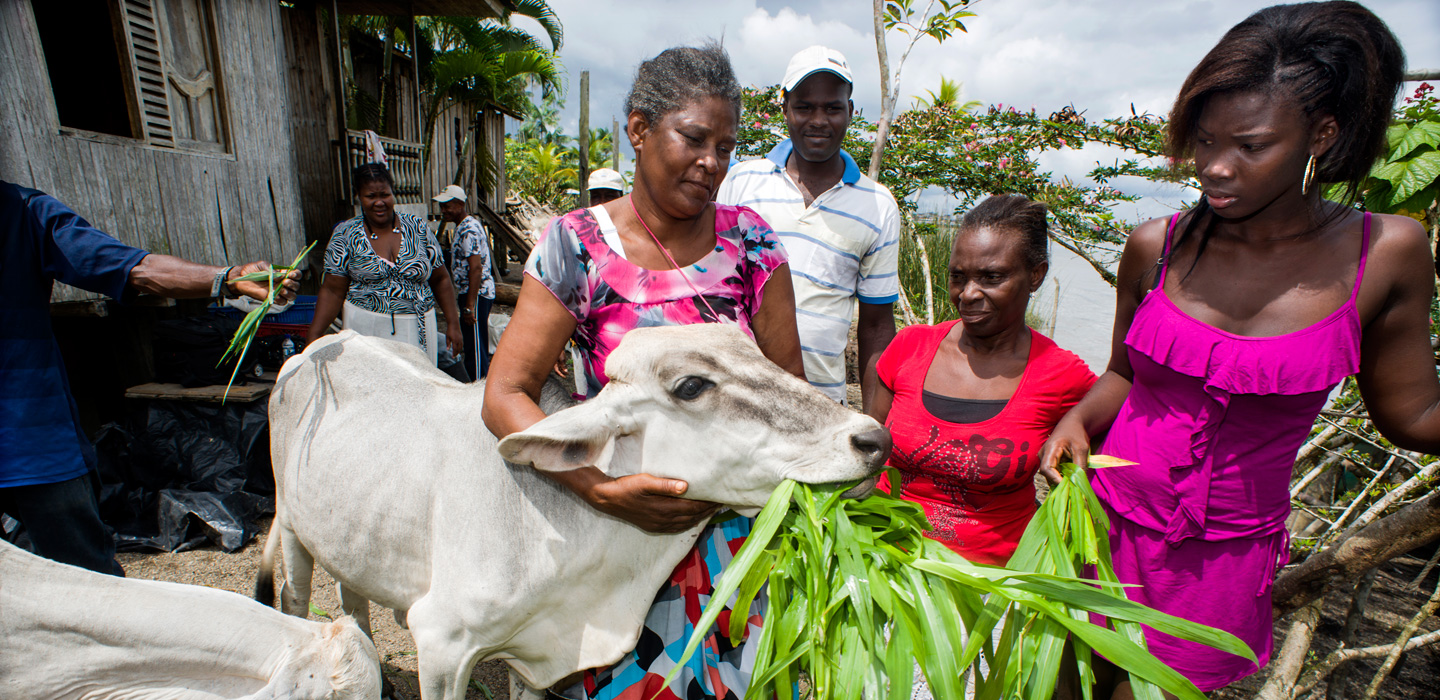New Report: Investments in indigenous peoples, youth and women essential to fight climate change in Latin America and the Caribbean
IFAD Asset Request Portlet
Asset Publisher
New Report: Investments in indigenous peoples, youth and women essential to fight climate change in Latin America and the Caribbean
03 December 2019
© IFAD / Panos Pictures / Xavier Cervera
Madrid, 3 December 2019 – Development projects that integrate investments in rural indigenous peoples, youth and women with measures to adapt to climate change are more likely to be successful in Latin America and the Caribbean, according to a new report launched today by the International Fund for Agricultural Development (IFAD).
The Latin America and Caribbean Advantage Report, based on a review of all IFAD-supported projects in the region, shows that this holistic approach, which also includes investments in better nutrition, has a sustainable impact and minimizes trade-offs and risks.
“One without the other is a recipe for short-term benefits only,” said Margarita Astralaga, Director of IFAD’s Environment, Climate, Gender and Social Inclusion Division. “But by investing across all areas we are truly laying the ground for long-term sustainable returns for the 17 million family farms in the region.”
“We must act now as the impacts of climate change are hitting family farmers today, not tomorrow,” she added.
Examples drawn from the report demonstrate the impact of this multi-pronged approach. In Haiti, IFAD–supported projects break down discrimination against women in agriculture, which previously undermined efforts to train farmers on how to adapt to climate change. Food insecurity for female-headed households is now expected to drop from 85 to 50 per cent by 2023.
Throughout the region, investments in the creation of strong youth networks have increased understanding among younger farmers of best practises when adapting to climate change. In Colombia, its network of 2,200 members in 70 local branches has managed to raise more than US$2 million from the Ministry of Agriculture and Rural Development in support of smallholder agriculture.
Drawing on indigenous knowledge systems is also paying dividends. In the Amazon Basin, indigenous communities are reintroducing hardy indigenous crops that are more resilient to unpredictable weather. This year, climate-related losses of crops have dropped by 20 per cent.
“IFAD will continue to pioneer innovative ways for family farmers in Latin America and the Caribbean and across the world to adapt to climate change,” said Astralaga. “It will also continue to advocate for the unique role family farmers play in bringing developing countries closer to meeting the UN’s Sustainable Development Goals, especially to eradicate hunger and poverty.”
For interviews: Brian Thomson, mob +39 3666121101, email [email protected]
Editors Notes:
By 2021, IFAD aims to have mainstreamed environmental sustainability and climate in 100 per cent of projects in the Latin America and Caribbean region. Moreover, 25 per cent of funding for investments is to be climate-focused, 25 per cent of projects are to be gender‑transformative, 50 per cent of projects are to be nutrition-sensitive and 50 per cent of projects are to mainstream youth.
Links:
Latin America and Caribbean Advantage Report
PR/51/2019
IFAD invests in rural people, empowering them to reduce poverty, increase food security, improve nutrition and strengthen resilience. Since 1978, we have provided US$21.5 billion in grants and low-interest loans to projects that have reached about 491 million people. IFAD is an international financial institution and a United Nations specialized agency based in Rome – the United Nations’ food and agriculture hub.
